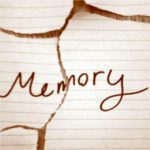Whether you are recovering from an alcohol use disorder, or actively in the grips of alcoholism, it is unlikely that you are a stranger to the term “blackout.” Nights of heavy drinking are commonly accompanied by mornings of confusion, often requiring the help of others to fill in the blanks of the night before. This side effect of heavy drinking is the result of one’s blood alcohol content becoming so elevated that the area of your brain responsible for long-term memory, the hippocampus – turns off.
In recovery, a large part of the journey involves sharing one’s story with others. It’s a way to relate with everyone else on the same path, and allows the addict to hear the insanity of their own disease. While everyone’s story is completely personal, elements of each person’s story can be found in the experiences of others.
From time to time, those in recovery find the courage to publish their story, allowing their voice to cross oceans. A new book, Blackout: Remembering the Things I Drank to Forget by Sarah Hepola, is a first person account of her struggle with alcoholism. Naturally, blackouts are the main focus of Hepola’s book.
“The nights I can’t remember are the nights I can never forget.” – Sarah Hepola
Just as telling one’s story at a 12-step meeting involves three phases, so too does Hepola’s memoir.
- What it was like?
- What happened?
- What it is like now?
Here are some excerpts from Blackout: Remembering the Things I Drank to Forget:
“A blackout is the untangling of a mystery. It’s detective work on your own life. A blackout is: What happened last night?”
“It’s such a savage thing to lose your memory, but the crazy thing is, it doesn’t hurt one bit. A blackout doesn’t sting, or stab, or leave a scar when it robs you. Close your eyes and open them again. That’s what a blackout feels like.”
“I finally understood alcohol was not a cure for pain; it was merely a postponement.”
Summer is just starting, why not add Hepola’s book to your summer reading list. If you have a teenage or young adult daughter you may think about sharing the book with them.







